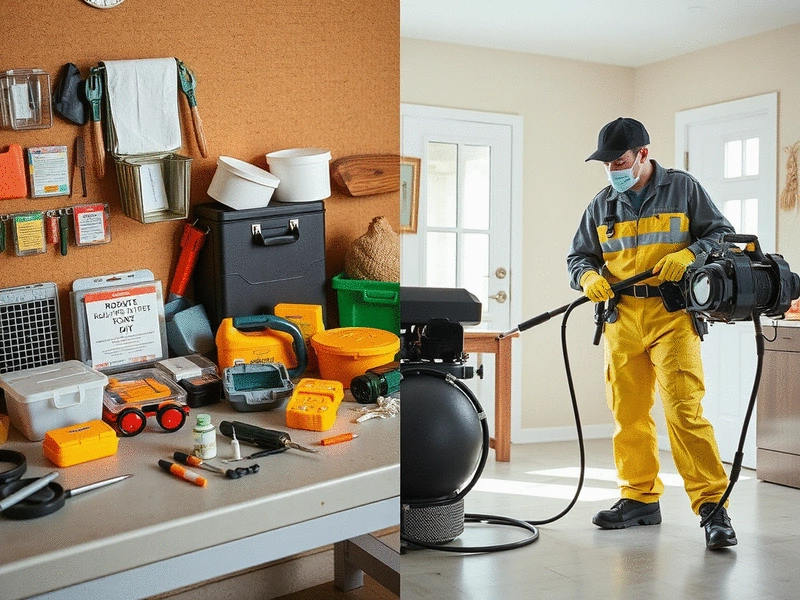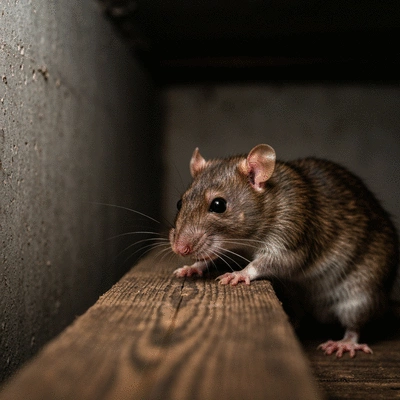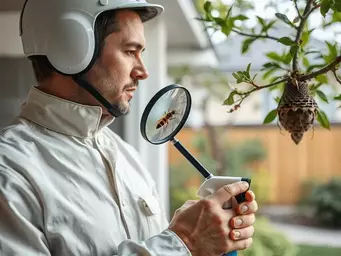DIY vs. Professional Rodent Control

When it comes to rodent control, swift action is essential. A single pair of mice can produce upwards of 200 offspring in a year, emphasizing the importance of effective measures. Are you equipped with the knowledge to address a potential rodent invasion?
What You Will Learn
- Recognize the common signs of a rodent infestation, including droppings, gnaw marks, and noises.
- Identify the most common rodent species in Sheffield, such as house mice, brown rats, and black rats.
- Understand rodent behavior, including their foraging habits and nesting preferences in urban environments.
- Learn when to consider DIY rodent control versus when to call in professional pest control services.
- Implement practical DIY rodent control tips, including sealing entry points and maintaining cleanliness.
- Adopt essential rodent-proofing steps to protect your home effectively and prevent future infestations.
Understanding Rodent Control: DIY vs. Professional Intervention
Deciding between DIY methods and professional pest control services depends on the severity and nature of the infestation. This comparison highlights key factors to consider. For more detailed guidance, consider choosing rodent control for Sheffield homes and businesses.
DIY Rodent Control
- ✓Minor issues (1-2 rodents)
- ✓Preventative measures (sealing, cleanliness)
- ✓Low-risk areas
Cost-effective for small-scale problems.
Professional Rodent Control
- ✗Severe infestations (multiple rodents, extensive damage)
- ✗Health concerns/allergies
- ✗Failed DIY attempts or lack of time
Expert solutions for complex and persistent problems.
Common Rodent Species in Sheffield
- ●House Mice: Small, agile, rapid breeding.
- ●Brown Rats: Larger, burrowing, significant damage.
- ●Black Rats: Less common, prefer higher nesting.
Each requires tailored control strategies.
Key Rodent Behaviors to Know
- ★Foraging: Opportunistic scavengers.
- ★Nesting: Warm, secluded areas near food.
- ★Social: Live in colonies, rapid population growth.
Understanding these aids in prevention.
Understanding Rodent Control Options in Sheffield
Rodent infestations can be a serious issue for many Sheffield residents. Understanding your rodent control options is crucial in keeping your home or business safe. In this section, we'll explore the signs that indicate a rodent problem, the common species you might encounter, and their behaviors in urban settings.
Identifying the Need for Rodent Control: Signs of Infestation
Recognizing the signs of a rodent infestation is the first step in addressing the problem. Rodents are sneaky pests, and by the time you notice them, they may have already established a nest. Here are some common signs to watch out for:
- Droppings: Small, dark pellets found near food sources or nesting areas.
- Gnaw marks: Evidence of chewing on furniture, wires, or packages.
- Nests: Shredded materials (like paper or fabric) hidden in corners or behind appliances.
- Noises: Scratching sounds in walls or ceilings, especially at night.
It's important to act quickly if you notice these signs, as rodents can multiply rapidly. If you're unsure, our team at Pest Control Sheffield is here to help you assess the situation and determine the best course of action! For further reading on this topic, see our guide on signs you need rodent control.

Common Rodent Species Found in Sheffield Homes
In Sheffield, the most common rodent species you may encounter include:
- House mice: Small and agile, these mice can breed quickly and adapt to various environments.
- Brown rats: Larger rodents that often live in burrows and can cause significant damage.
- Black rats: Less common but still a threat; they prefer to nest in higher areas.
Each species has unique traits and behaviors, which our team is well-equipped to handle. Understanding which type of rodent you’re dealing with allows us to tailor our pest control strategies effectively.
Rodent Behavior: Insights into How Rodents Operate in Urban Areas
Rodents are incredibly resourceful, especially in urban areas like Sheffield. They thrive on the availability of food and shelter. Here are key insights into their behavior:
- Foraging habits: Rodents are opportunistic feeders, often scavenging for scraps left by humans.
- Nesting preferences: They prefer warm, secluded areas that are close to food sources, like attics or basements.
- Social structures: Many rodents live in colonies, which can lead to rapid population growth if not controlled.
Understanding these behaviors can help in developing effective prevention and intervention strategies. If you suspect a rodent problem, don’t hesitate to reach out to us at Pest Control Sheffield for expert advice and services!
Pro Tip
To enhance your rodent control efforts, consider incorporating natural deterrents. For example, peppermint oil is known to repel mice. Soak cotton balls in peppermint oil and place them in areas where you've noticed rodent activity. This not only helps keep them away but also leaves a pleasant scent in your home!
Making the Right Choice for Your Home
When it comes to tackling a rodent problem, making the right choice can save you time, money, and unnecessary stress. At Pest Control Sheffield, we often get asked whether homeowners should try to handle rodent control themselves or call in the experts like us. The answer isn't one-size-fits-all; it depends on the severity of your situation and your comfort level with various methods.
Knowing when to consider DIY rodent control and when to reach out for professional help can be the difference between a quick fix and a lengthy battle. Let’s explore some key indicators that can help you make the best choice for your home.
When to Consider DIY and When to Call in the Experts
Many homeowners are tempted to save money by attempting DIY methods first. While this can be effective for minor issues, there are times when it's best to call a professional. Here are some signs to consider:
- Signs of a Severe Infestation: If you see multiple rodents or extensive damage, it’s time to get expert help.
- Health Concerns: If you or your family have allergies or health issues, professionals can use safer methods.
- Ongoing Issues: If you’ve tried DIY methods without success, it’s wise to consult a pro.
- Lack of Time: If you’re busy, hiring a professional can save you valuable time and effort.
Don’t hesitate to reach out to us at Pest Control Sheffield if you find yourself in doubt. We’re here to provide tailored solutions to meet your unique needs!

Practical Tips for Safe DIY Rodent Control in Sheffield
If you decide to tackle the issue yourself, there are some practical tips to ensure you do it safely and effectively. Here are some steps to consider:
- Seal Entry Points: Inspect your home for cracks or gaps and seal them to prevent rodents from entering.
- Use Traps Wisely: Place traps in areas where you’ve noticed signs of activity, such as droppings or gnaw marks.
- Maintain Cleanliness: Keep your home tidy and eliminate food sources that might attract rodents.
- Use Safe Baits: If using baits, opt for those that are less harmful to pets and children.
Keep in mind, however, that while these methods can be effective, they may not solve underlying issues. That's where our expertise shines! For more insights on managing specific rodent issues, explore our article on managing rats in Sheffield homes.
Rodent Proofing: Essential Steps to Protect Your Home
Rodent proofing your home is an essential part of any pest control strategy. Taking preventive measures can help keep your home rodent-free. Here are some essential steps you can implement:
- Inspect Your Home: Regularly check for potential entry points and signs of rodent activity.
- Store Food Properly: Keep all food in airtight containers and clean up spills promptly.
- Manage Outdoor Spaces: Trim back shrubs and keep your garden tidy to deter rodents from nesting near your home.
- Educate Family Members: Make sure everyone in your home understands the importance of maintaining cleanliness and reporting signs of pests.
At Pest Control Sheffield, we believe that knowledge is power! Implementing these rodent-proofing steps can be a game-changer in maintaining a pest-free environment.
Frequently Asked Questions About Rodent Control
- Q: What are the most common signs of a rodent infestation?
- A: The most common signs include droppings (small, dark pellets), gnaw marks on food packaging or structures, nests made of shredded materials, and scratching noises in walls or ceilings, especially at night.
- Q: Which rodent species are typically found in Sheffield?
- A: In Sheffield, you're most likely to encounter house mice, known for their rapid breeding, and brown rats, which are larger and can cause significant damage. Black rats are less common but do exist.
- Q: When should I choose DIY rodent control versus calling a professional?
- A: DIY methods are suitable for minor issues or preventative measures. However, for severe infestations, ongoing problems after DIY attempts, health concerns, or if you lack time, it's best to call professional pest control services.
- Q: What are some practical DIY tips for rodent control?
- A: Practical DIY tips include sealing all entry points into your home, strategically placing traps in active areas, maintaining a clean home to remove food sources, and using pet/child-safe baits if necessary.
- Q: What is rodent-proofing, and why is it important?
- A: Rodent-proofing involves taking preventive measures to keep your home free of rodents. This includes regularly inspecting for entry points, storing food in airtight containers, keeping outdoor areas tidy, and educating family members on cleanliness and pest reporting. It's crucial for long-term prevention.
Recap of Key Points
Here is a quick recap of the important points discussed in the article:
- Signs of Infestation: Look for droppings, gnaw marks, nests, and noises as indicators of a rodent problem.
- Common Species: Be aware of house mice, brown rats, and black rats prevalent in Sheffield. For detailed identification, refer to identifying pests in Sheffield properties.
- Rodent Behavior: Understand their foraging habits and nesting preferences to help in prevention strategies.
- DIY vs. Professional Help: Assess the severity of the infestation to determine whether to handle it yourself or call in experts.
- Practical DIY Tips: Seal entry points, maintain cleanliness, and use traps effectively if opting for DIY methods.
- Rodent Proofing: Regularly inspect your home, store food properly, and educate family members to maintain a pest-free environment.
Popular Posts
 Consider this startling fact: bed bug infestations have risen by over 500% in recent years, highligh
Consider this startling fact: bed bug infestations have risen by over 500% in recent years, highligh
 As a commercial property manager, understanding the laws governing pest control is not just a legal
As a commercial property manager, understanding the laws governing pest control is not just a legal
 Ready to protect your property while ensuring the safety of your community? Understanding the long-t
Ready to protect your property while ensuring the safety of your community? Understanding the long-t
 When facing a pest emergency, time is of the essence. With same-day insect exterminator services, yo
When facing a pest emergency, time is of the essence. With same-day insect exterminator services, yo
